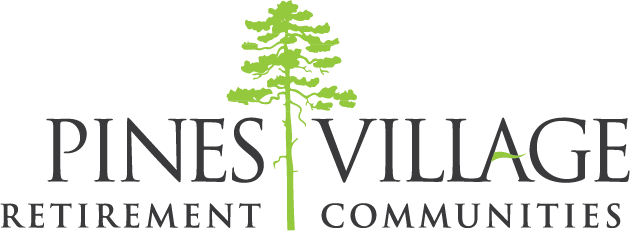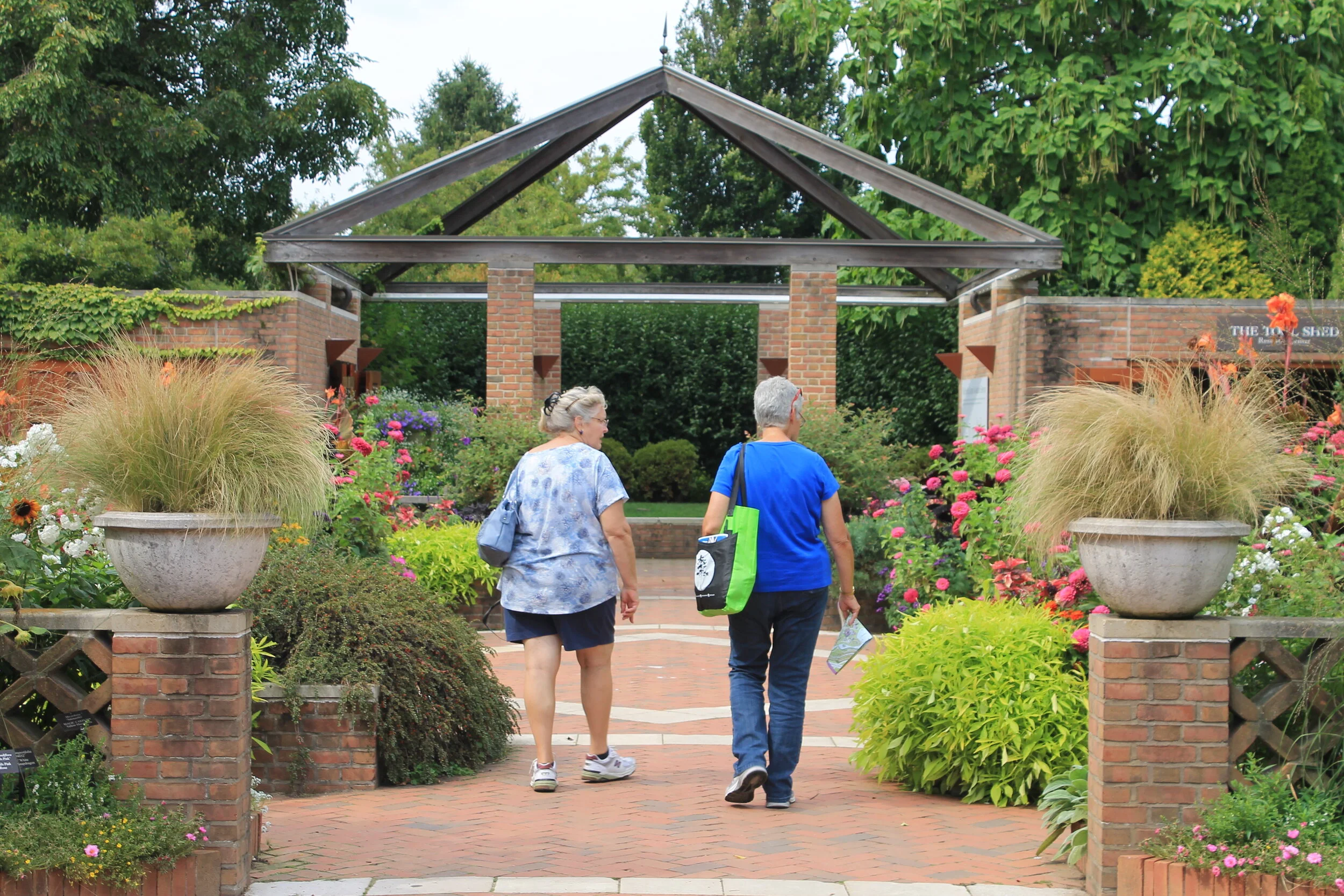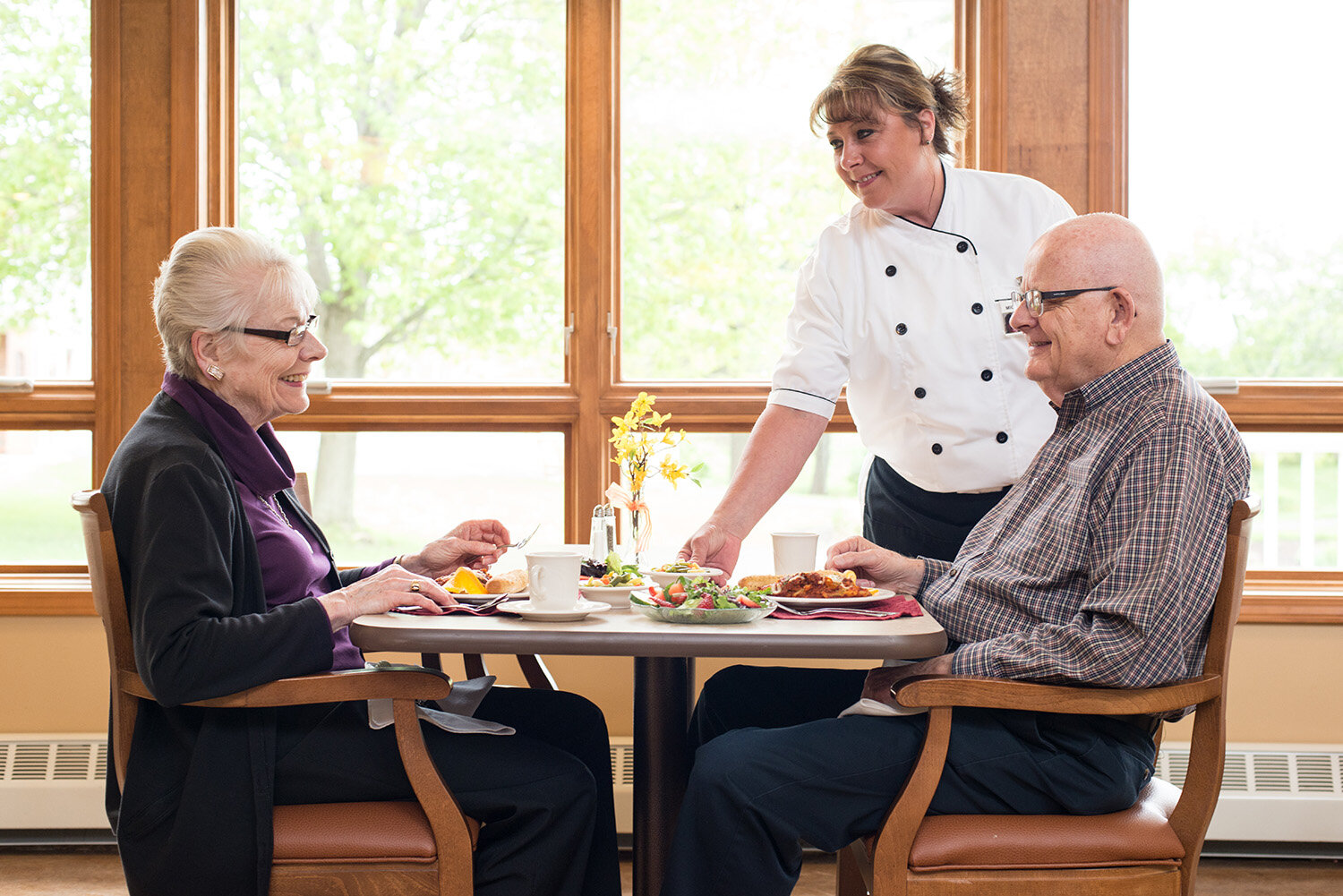When you or a loved one are looking into senior living, there are many different options to consider. Some older adults require living options with more assistance, while others just want a sense of community while still living independently. Each option comes with its own specific costs, with more assistance usually costing more money. So, once you find the perfect choice for your situation, how do you cover the cost of senior living? In this article, we’ll explain all of the different options that are available to pay for senior living. First, let’s look at the expenses that senior living will entail.
Senior Living Costs
There are various costs that you’ll have to take into consideration when you are looking at senior living options. Here are some of the most common expenses:
Application Fees
Entry Fees
Rent
Additional Assistive Services
The specific amounts you’ll pay for each of these fees will depend on the particular community you are applying to live in. These costs also vary throughout the country, but you should plan ahead so you are able to budget appropriately for them.
The amount you have to pay will also depend on whether you buy-in or pay monthly for rent. Here’s the difference between the two:
Buy-In: In a Buy-In situation, you would move into a senior living community’s independent living section and pay an additional fee upfront on top of your monthly fee. This fee acts as a Buy-In or down payment for moving to assisted living or skilled nursing later on, should you require it. These are most commonly referred to as Continuing Care Communities (CCRC).
Pay Monthly Rent: When you pay monthly rent, you pay for your living space and the specific level of care you receive each month, whether that is independent living, assisted living, or skilled nursing. With this option, your monthly costs increase as your level of care increases.
Now that we’ve laid out the various expenses you can expect for senior living; it’s time to explore the options for how to pay for those expenses.
Private Pay
Most senior communities primarily accept private pay for their services. Private pay means that the individual residents and/or their family is responsible for financing senior housing. Here are some of the top ways to fund senior living privately:
Personal Assets – Many people self-fund their transition to a retirement community through personal assets, including savings, investments, social security, pensions, etc. Seniors will often sell their most significant asset, their home, to fund the senior living option of their choice.
Family Help - Family members can pool their resources to help pay for senior living for their senior loved one. By covering the cost of senior living, everyone in the family can have peace of mind that their loved one is receiving the care they need and living in a fun, safe community where they can interact with other older adults. This can include paying out-of-pocket or selling the loved one’s house or other items to help pay for their care.
Senior Living Line of Credit - A Senior Living Line of Credit is generally a signature or personal line of credit that allows families to borrow the money they need each month to pay for senior living expenses. These lines of credit can be up to $50,000 and are an excellent option for families who are waiting on other assets (like selling a house) to be able to pay for senior living.
Annuities - An annuity is a contract you purchase with a lump sum upfront from an insurance company that provides income at a later date. This is usually for a certain period of time or for the rest of an individual’s life. Then, the person who purchased the annuity receives set payments for the rest of their lives from the insurance company. Annuities offer regularity and predictability, so they are a great option for older adults looking ahead to senior living.
Veterans’ Benefits - There are several pension programs specifically for veterans and their surviving spouses that help pay for assisted living. Visit VA.gov to find out if you qualify or to learn more about the assistance provided.
Reverse Mortgages - Reverse mortgages let older adults access the equity from the home that they own. These individuals can then use those funds to pay for assisted living. The U.S. Department of Housing and Urban Development has a federally insured reverse mortgage program that can help you cover the costs of senior living.
Life Insurance Policies - Some life insurance policies offer unique flexibility that allows you to pay for assisted living while the policyholder is still alive. While you may not receive the full benefit of the policy, being able to convert your policy into living benefits is another good option to help pay for senior living.
Long-Term Care Insurance - Long-term care insurance is a specific type of insurance policy that will pay for long-term care when it becomes necessary, such as assisted living expenses. These insurance policies require advance planning since you will be committing resources to future senior living expenses.
Additional Funding - There are also more options to receive financial assistance to pay for senior living. These include other assistance programs from federal, state, and local governments, the VA, nonprofits, private organizations, as well as many other agencies. To learn more, use this resource locator tool to find out what assistance you may be eligible for.
Medicaid
Medicaid (not to be confused with Medicare) is a joint federal and state benefit program that helps individuals who have low income and limited assets pay for their healthcare costs, including things like long-term care. There are several different Medicaid programs that can provide financial assistance when paying for assisted living, but the availability of these programs varies on a state-by-state basis. Many senior living facilities focus primarily on private pay options and have few rooms reserved for individuals who would pay with Medicaid.
State Assistance Programs (Non-Medicaid)
If you’re in need of financial assistance to help cover the cost of senior living, each state also has its own assistance programs outside of Medicaid. These programs help older individuals pay for different types of senior living expenses. Here is a list of the options for assistance in Indiana:
CHOICE Program (Community and Home Options to Institutional Care for the Elderly and Disabled) - The CHOICE Program is designed to assist older individuals in Indiana continue to live independently in their own homes or communities by providing home and community-based services (HCBS). This includes home modifications for aging in place, as well as in-home care and in-home support. This program is managed under the guidance of Indiana’s sixteen Area Agencies on Aging and requires applicants to be at least 60 years old or have a disability. Click here to learn more about the requirements and benefits of the CHOICE Program.
Indiana Residential Care Assistance Program (RCAP) - The Indiana Residential Care Assistance Program is a state-funded program that provides assistance to older Indiana residents who are disabled or who otherwise cannot live alone. The individuals who qualify for this program are required to live in specific residential care facilities or housing approved by the State Department of Health. If they don’t already live in the facilities, then they must be willing to move into them. Under this program, beneficiaries receive financial assistance to help pay for costs like housing, food, and laundry. Click here to learn more about the requirements and benefits of RCAP.
Pines Village Retirement Communities, Inc. is a nonprofit senior living community in Valparaiso, Indiana, with two campuses: Pines Village and Meridian Woods. The Pines Village campus offers pet-friendly independent living apartments with the option to add assistive services à la carte or in packages. The Meridian Woods campus consists of maintenance-free paired homes and Meridian Woods Community Center, which hosts events and acts as a meeting space for residents and local nonprofits.
At Pines Village, we celebrate life by enriching the lives of older adults. We pride ourselves on our culture, which is driven by a passion for serving the residents, visitors, and staff of Pines Village as well as the greater Valparaiso community. Explore our senior apartment availability, learn more about our assisted living options, or contact us with any questions today!






